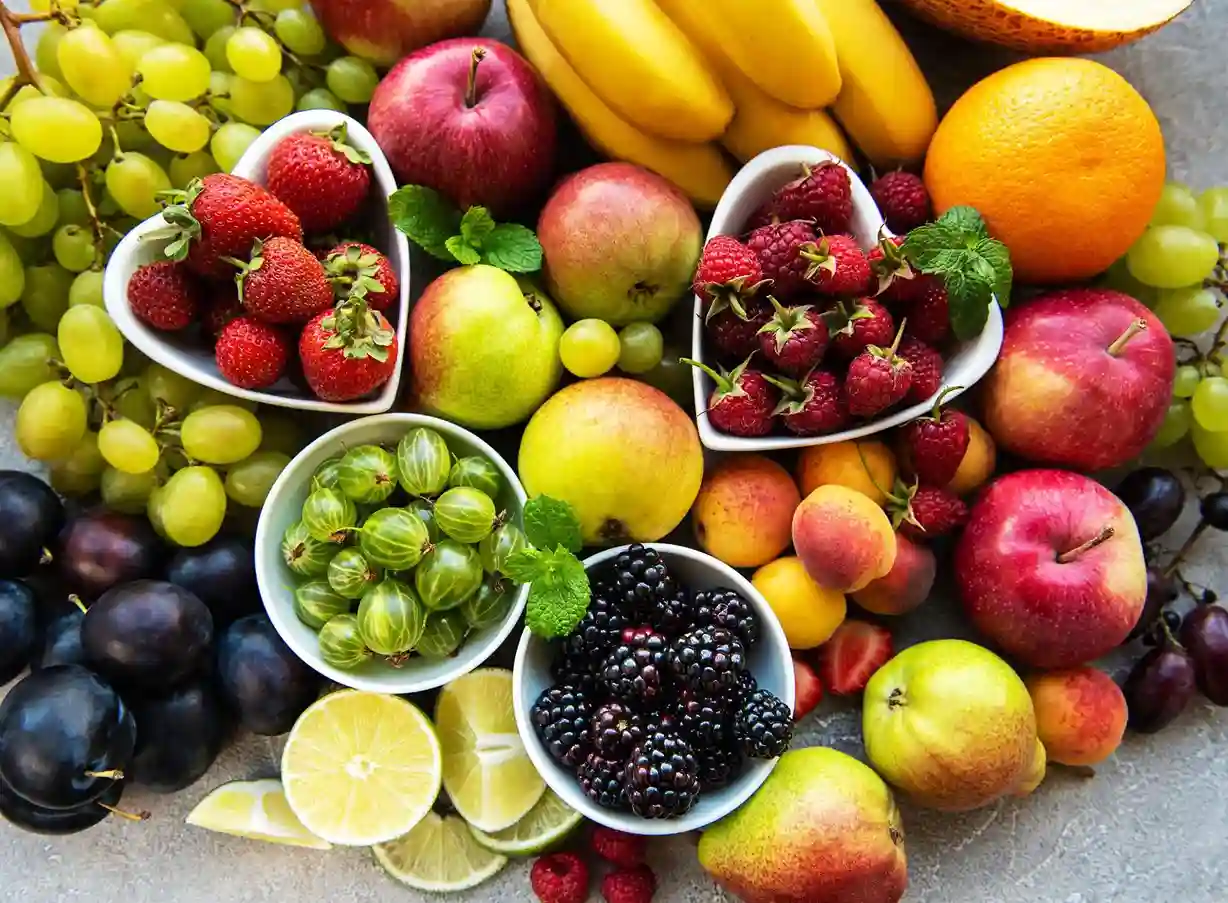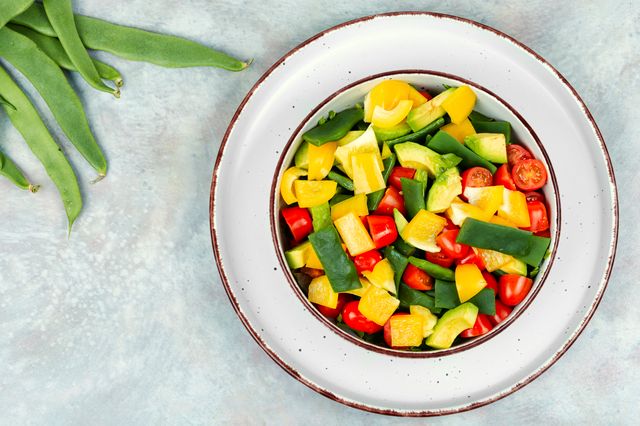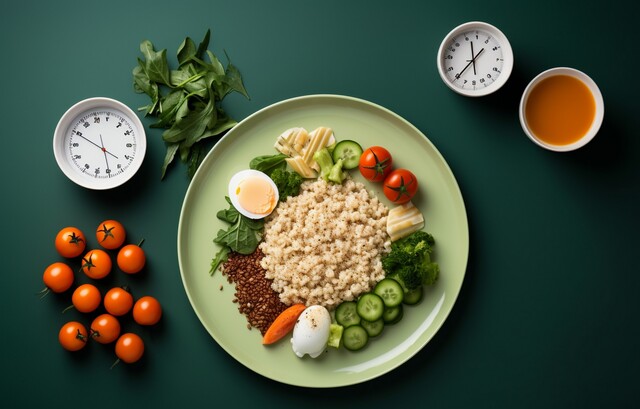- Are you depriving yourself of potato dishes, pasta, and baked goods?
- Do you limit yourself to the intake of vegetables and fruits?
This does not benefit the body and needs to be corrected. Let’s determine what carbohydrates are healthy and in what quantities. Many modern diets and much information on proper nutrition have created a complete mess in people’s minds.
Almost all diets prohibit athletes from including carbohydrates, considering them their worst enemies. Many runners limit their sugar intake and sometimes eliminate it from their diet forever, but this is a good thing.
Some people deprive themselves of potato dishes, pasta, bread, and bakery products, which is incorrect and justified. Some athletes consciously limit their intake of vegetables and fruits, which is not good for the body.
What Types of Carbohydrates Are There?

There are different types of carbohydrates, and in everyday life, they should form the basis of a healthy diet and be included in an athlete’s diet every day.
These are vegetables and fruits, representatives of legumes and grain crops. It is not fatal to include a little sweets in this diet. Provided that sweet products do not exceed 10% of all calories daily.
Sometimes, people can eat a yeast bun or cake if the dishes consumed contain sufficient whole grain products for a long time. Carbohydrate products mainly consist of starch and various sugars, similar substances in composition.
So, all vegetables, for example, green peas or potatoes, contain sugars when young and unripe. Then, the sugars give way to starch. On the contrary, fruits do not contain sweet starch at the ripening stage, but when ripe, they gain sweetness, as sugars are formed in them; bananas and watermelons are clear examples of this.
Both starches and sugars are good sources of energy for long-distance runners. If you eat foods containing these substances, the body will process them into glucose. Glucose feeds the brain and is contained in the muscles as glycogen. This substance allows you to withstand the loads during long-term training.
Glycogen is produced by the liver, from where it enters the blood; thus, glycogen maintains sufficient sugar in the blood. Some foods contain carbohydrates, which are beneficial for the body as an energy source.
But if the products contain regular sugar—as a rule, energy drinks, gels, and sweet syrups—and do not contain vitamins, they are harmful and not nutritious; they can be classified as “junk” calories.
Most recommendations for limiting carbohydrates in the daily diet mainly concern amateurs and sports beginners.
With immoderate consumption of products enriched with sugars and harmful calories, the poorly trained body does not have time to use them as energy. This threatens to gain excess body weight, and the most terrible consequence is diabetes.
Key Ingredients of Sports Nutrition

Many facts prove the usefulness of carbohydrates in the usual diet if you include them in the diet wisely. During long-distance running, carbohydrates remain the main source of energy.
An insufficient amount of carbohydrates entails a lack of glycogen, without which muscles cannot work fully during exercise.
If training takes place almost every day, then the sports diet must be based on healthy carbohydrates so that the exercise leads to the desired result. The International Olympic Committee has developed a special sports diet, which outlines approximate meals containing carbohydrates.
That’s about 90g of carbs with your main meal, plus about 50g of carbs with each additional snack.
These numbers are significantly higher than those in protein shakes, which are popular among athletes, instead of breakfast, spinach salad for lunch, and, instead of dinner, only plates of broccoli without any side dish of cereal.
This is what an approximate carbohydrate menu for an athlete looks like:
- Breakfast can consist of a bowl of oatmeal, one banana, and a large spoon of honey, which will be 90 g of carbohydrates.
- A pea or lentil soup with whole grain bread will provide approximately 100g of carbohydrates for lunch.
- For a snack, a partial cup of raisins with a slice of chocolate, preferably dark, only 60 g of carbohydrates.
- Dinner might include brown rice with broccoli bits and 75g of carbohydrates.
- For a second snack, you can have yogurt with cereal and granola, making up 50 g of carbohydrates.
A sample menu may already seem very high in calories, leading to doubt that it will fit into the athlete’s usual diet. You must also include proteins and fats while trying not to gain excess weight.
Oddly enough, these products fit nicely into a daily menu with an average calorie intake of 2500; you can calculate the acceptable calories for your weight based on 40 kilocalories per 1 kg. If carbohydrates are distributed correctly in the diet, they can become friends, benefit the body, and positively affect training results.
Myths About Carbohydrates
Excess weight and carbohydrate consumption with food do not directly depend on it. There is a myth that carbohydrates can cause extra pounds. But carbohydrates have nothing to do with it. The main reason for excess weight is excessive calories due to overeating.
Here, we are faced with another myth that it is much easier and faster to gain weight from excess carbohydrate foods, such as pasta, bread, and buns than from foods containing vegetable and animal fats.
These include, for example, vegetable oils, creams, cheeses, and dairy products. Converting calories from carbohydrates into fat requires more energy than converting calories from foods high in fat.
What Are the Benefits of Carbohydrates?

Firstly, carbohydrate-rich foods help strengthen the heart muscle, which minimizes heart disease, prolongs the youth of this organ, and eliminates the risk of developing type two diabetes and even cancer.
Healthy carbohydrates, such as vegetables and fruits, cereals,, and legumes, keep the intestinal flora healthy, as they are food for many bacteria living in it.
Live bacteria are vital for human health; they perform a protective function of the body and benefit internal processes, metabolism, and the production and absorption of vitamins.
As a result, mood and immunity improve, and weight decreases. Sports doctors advise including healthy carbohydrates in sufficient quantities in one’s daily diet.
Athletes who adhere to a strict diet based on limiting or eliminating carbohydrates doom themselves to exhaustion and decreased immunity, which inevitably leads to illness, fatigue, and overtraining.
Since carbohydrates affect mood, they can brighten gray days with boring workouts. For runners, most of the training consists of monotonous runs with pieces of speed runs.
Carbohydrates, such as a bun or a chocolate bar, will help you avoid depression after a difficult workout. Sometimes, you can allow yourself junk calories if they do not exceed 10% of all daily calories, and the training process will become brighter.
The main thing is not to abuse sweet carbohydrates so they do not become a bad habit and do not lead to weight gain. Thus, carbohydrates are of great benefit to the athlete’s life. Monitoring the quality of your food will help you avoid overeating, monitor your hunger, and minimize diet breakdowns. This will benefit your training process and improve your results.




